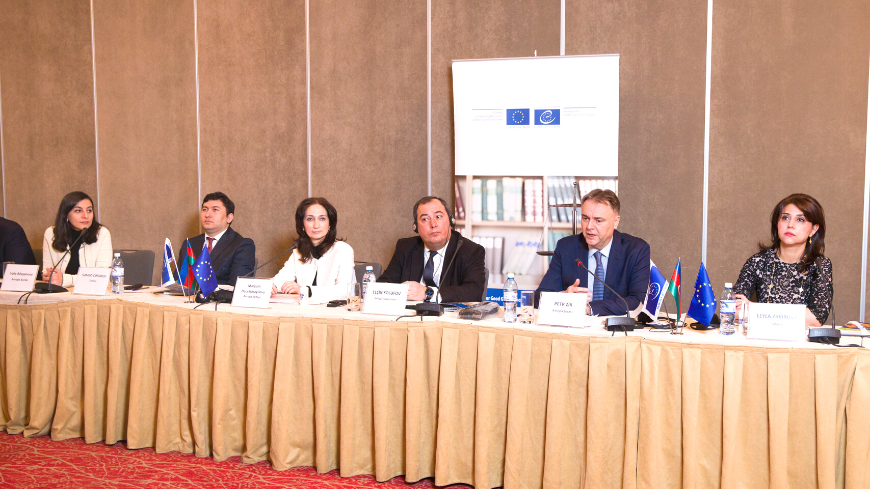On 8 and 10 February 2023, the European Commission for the Efficiency of Justice (CEPEJ) in cooperation with the Justice Academy of Azerbaijan organised two training sessions on court performance reporting according to its tools and methodology. The aim of the trainings was to develop a standard methodology of court performance reporting for the entire Azerbaijani judiciary based on CEPEJ indicators.
Court presidents, judges and court staff from Baku and regions attended the training sessions led by three local trainers who completed the Training of Trainers provided by the CEPEJ in June 2021.
As a result of the trainings, participants increased their knowledge on the use of CEPEJ performance indicators and got acquainted with the experience of the Ministry of Justice and a pilot court in the implementation of regular reporting based on statistical analysis in line with CEPEJ tools.
In addition, CEPEJ Secretariat responsible for the implementation of the regional project "Justice Dashboard EaP” raised awareness of the participants on the CEPEJ bi-annual exercise of evaluation of the judicial systems and the CEPEJ-STAT dynamic database.
The activities were carried out in the framework of the project "Strengthening the efficiency and quality of the judicial system in Azerbaijan", funded by the European Union and the Council of Europe and implemented by the Council of Europe in their Partnership for Good Governance II and with the support of the Joint Programme "Support for a better evaluation of the results of judicial reform efforts in the Eastern Partnership” ("Justice Dashboard EaP"), which is co-funded by the European Union and the Council of Europe and implemented by the latter.





